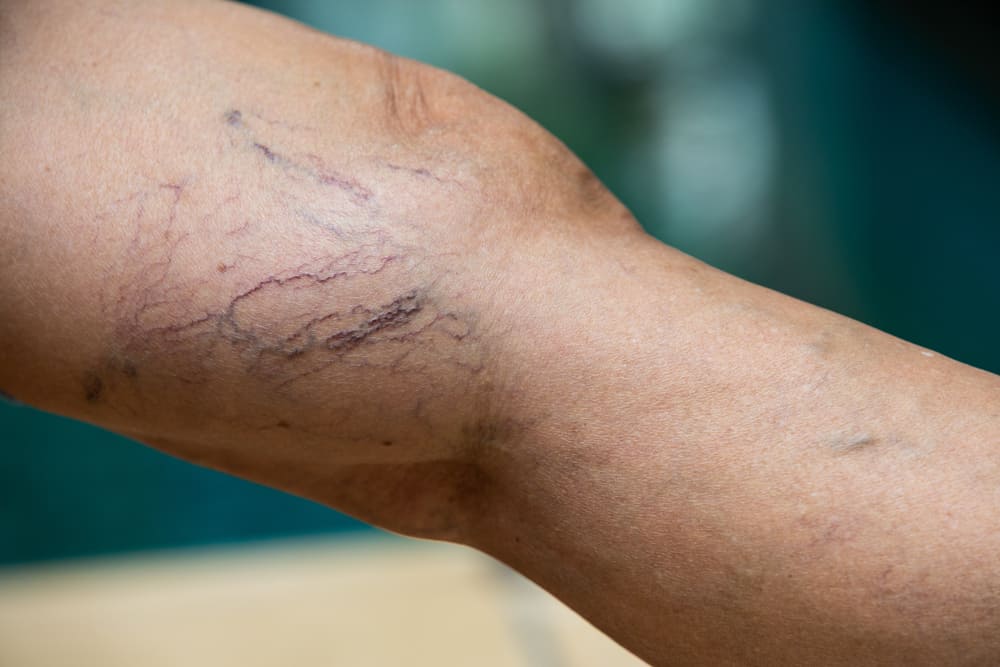The circulatory system in your body is what transports blood throughout your whole body. Your blood carries oxygen and nutrients with it that help support your body and keep you healthy. Every time your heart beats, it is a signal that blood is moving through your body from the center of your chest all the way to your hands and feet. If you experience poor blood circulation, then it is typically related to another health condition. That is why it’s important to treat the underlying cause of a symptom like poor circulation so you can fully heal and recover. Talk to your orthopedic doctor about your symptoms of poor circulation and continue to find out what causes circulation problems and what treatments are available.
Symptoms of Poor Circulation
When blood isn’t pumping effectively through your body and delivering necessary oxygen and nutrients, it can cause some uncomfortable symptoms. The most common symptoms of poor circulation include a throbbing or stinging pain that often occurs in your extremities like your arms, hands, legs, and feet. In addition to experiencing pain in your feet or those other areas, you may also notice muscle cramping and weakness. Other signs and symptoms of poor circulation include tingling and numbness in the area that may radiate into other parts of the body. The different health conditions that cause poor circulation may also have additional symptoms that make those conditions affect your body in other unique ways.
What Causes Circulation Problems
Poor circulation can be caused by a variety of health conditions, including the following:
Blood Clots
A blood clot refers to when the flow of blood is either partially or completely blocked. When blood isn’t getting where it needs to go effectively, it can lead to poor blood circulation and even dangerous health concerns. You can develop a blood clot in your outer extremities, like an arm or a leg, that then travels through your body and ends up in your heart or lungs. A blood clot in your heart or lungs can end up causing a serious condition like a stroke, which may be life-threatening.
Varicose Veins
Varicose veins are large veins that are commonly found along the back of the legs. You may notice large, raised veins that stand out and you can see visibly under your skin. Varicose veins are caused by an issue with your heart valves and indicate that blood can’t move through your veins as effectively. Poor circulation associated with varicose veins is hereditary, and you are at higher risk of developing these if you have a family history, are female, or struggle with being overweight.
Diabetes
Diabetes is most commonly associated with blood sugar regulation issues, but it can also affect the circulation in your body. Diabetes can cause cramping in your legs, hips, and buttocks and can even lead to reduced feeling and sensation in your extremities. You are also at higher risk for high blood pressure and heart disease if you have diabetes.
Raynaud’s Disease
Raynaud’s disease is a health condition that can cause you to have chronically cold hands and feet. This disease causes the arteries in your fingers and toes to become narrower, which restricts the blood flow in these areas. Poor blood circulation caused by Raynaud’s disease can also affect other parts of the body and is more common in women.
Peripheral Artery Disease
Peripheral artery disease is a health condition that primarily affects the arteries and blood vessels that circulate blood to your legs. Poor circulation in the legs may occur because of peripheral artery disease and the buildup of plaque in your arteries and blood vessels. This can restrict blood flow to your legs and feet, causing pain, tingling, numbness, and even nerve and tissue damage.
Poor Circulation Treatment Options
Your orthopedic doctor will want to diagnose the underlying cause of your poor circulation in order to develop a personalized treatment plan for you. Poor circulation treatment may include a combination of techniques to increase your circulation and reduce any blockages or clots that may negatively impact your blood circulation. Reach out to your doctor as soon as you begin experiencing symptoms of poor circulation because it can lead to health conditions that should be treated right away.
Visit AICA Orthopedics to find a location near you and meet with an orthopedic doctor right away.





